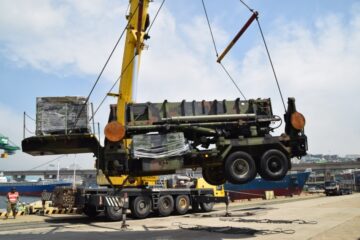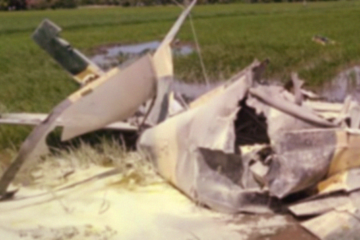MANILA – The Department of Energy (DOE) is aggressive in calling for support to revive the Bataan Nuclear Power Plant (BNPP) as it targets to launch more information drive with stakeholders to look into the benefits of operating a nuclear power facility.
During a press conference on BNPP in Taguig City Friday, DOE Secretary Alfonso G. Cusi said the government aims to be more transparent in discussing with the public the potentials of the BNPP.
“Those who are opposing to it, we will continue to listen. But after 40 years that BNPP was mothballed, not necessarily the BNPP but all other projects to have a nuclear power plant in the country, maybe by this time we are more informed of how it could be benefitted us had we put one in the country,” said Cusi.
He said DOE aims to conduct an extensive study on reviving BNPP with the help of the International Atomic Energy Agency (IAEA).
IAEA concluded a nuclear energy conference here Thursday and went to Morong, Bataan to visit the BNPP.
Chamber of Commerce of the Philippine Islands (CCPI) President Jose Luis Yulo Jr. likewise noted that the Slovenian government is willing to send a team to come up with a re-study on the equipment and safety compliance procedure of the facility as well as coming up with a program on human resource for the BNPP.
He added that Slovenia could rehabilitate the BNPP at only 15 percent of the cost of a new plant within 18 months.
He also stressed that the Philippines should send delegations in countries with a nuclear power plant to increase knowledge on the benefits of putting up nuclear energy facility.
Three nuclear power plants — Angra 1 in Brazil, Kori 2 in South Korea, and Krško Nuclear Power Plant in Slovenia — are reference facilities for BNPP as these were all constructed by Westinghouse Electric Company.
In the past year, the Korean Electric Power Corp. (KEPCO) has conducted the feasibility study on BNPP with findings that the facility can be rehabilitated successfully at the cost of USD1.0 billion.
The study noted that 24 percent of about 6,000 plant systems and equipment needs replacement while the rest will require inspection, overhauling, and testing.
It will take about four years to recommission the BNPP, according to the KEPCO study.
DOE is looking at the possibility to revive the BNPP to ensure stable, sustainable, clean, and cheap energy for the country.
“The DOE is in charge of planning the power requirement of the country, not just now but also in the future. That’s why we’re looking at it very extensively,” the Energy Secretary stressed.
(PNA)
FPV/KMC





















